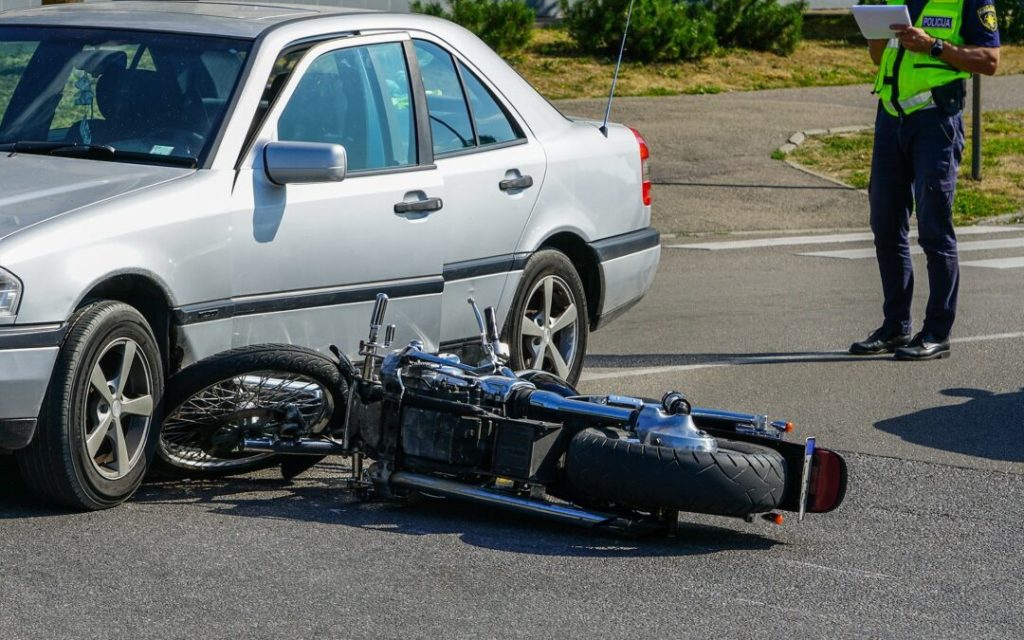

**Important Legal Steps to Take After a Motorcycle Accident**
Motorcycle accidents can be distressing and can dramatically change one’s life. Because motorcyclists lack the physical protections that cars provide, they face a greater chance of suffering severe injuries or fatalities during a collision. Following such an event, it is vital to undertake certain legal measures to safeguard your rights, obtain appropriate compensation, and manage the intricate details of insurance and liability. This article highlights the important legal procedures to follow after a motorcycle accident.
—
### 1. **Verify Safety and Obtain Medical Care**
The foremost step post-motorcycle accident is to assess for injuries and seek urgent medical care. Even if the injuries appear trivial, it is essential to have them assessed by a healthcare professional. Some injuries, like traumatic brain injuries or internal bleeding, may not be immediately evident.
From a legal perspective, medical documentation is crucial evidence when filing insurance claims or initiating legal action. Timely medical attention also illustrates that you regarded your injuries seriously, which can enhance your case.
—
### 2. **Notify Law Enforcement**
It is critical to report the incident to the authorities, particularly if there are injuries, fatalities, or substantial property damage. A police report generates an official account of the event, noting the date, time, location, and statements from those involved and witnesses.
This report can be an essential piece of evidence in determining fault and liability. Make sure to secure a copy of the police report for your files.
—
### 3. **Collect Evidence at the Scene**
If you are capable, gather as much evidence as you can at the site of the accident. This includes:
– Photos of vehicles, road conditions, skid marks, traffic signals, and any visible injuries.
– Contact information for the other driver(s), including their name, phone number, license plate number, and insurance information.
– Names and contact details of any witnesses.
– Notes regarding the events before, during, and after the accident.
This evidence can be invaluable for your insurance claim or any personal injury lawsuit.
—
### 4. **Inform Your Insurance Provider**
Quickly notify your insurance provider about the accident. Provide them with truthful and precise information, but refrain from admitting fault or speculating on what caused the accident. Stick to the facts and allow the investigation to establish liability.
Be aware that insurance companies may try to reduce payouts. Thus, consulting with an attorney prior to providing a recorded statement or accepting any settlement offers is advisable.
—
### 5. **Seek Advice from a Personal Injury Lawyer**
Cases involving motorcycle accidents can be intricate, particularly when serious injuries or contested liability arise. Consulting a personal injury lawyer who has expertise in motorcycle accidents can clarify your legal rights and choices.
A skilled attorney can:
– Assess the strength of your case.
– Manage communications with insurance companies.
– Gather further evidence, such as security footage or expert witness statements.
– Negotiate a just settlement or stand for you in court if necessary.
Most personal injury attorneys offer free consultations and work on a contingency fee basis, meaning they get paid only if you win your case.
—
### 6. **Keep All Documentation Safe**
Maintain thorough records of all documents related to the accident, including:
– Medical invoices and treatment records.
– Repair estimates and receipts for your motorcycle.
– Documentation of lost wages from your employer.
– Communication with insurance companies and legal representatives.
These records will support your claim for damages, covering medical costs, property damage, lost earnings, and pain and suffering.
—
### 7. **Be Aware of Legal Time Limits**
Each state imposes a statute of limitations defining a deadline for initiating a personal injury lawsuit. This time frame can vary from one year to several years based on your jurisdiction. Failing to file within this period may result in forfeiting your right to seek compensation.
An attorney can assist in ensuring that all necessary documents are submitted punctually and that you adhere to all legal time frames.
—
### 8. **Avoid Publicly Discussing the Incident**
Do not talk about the accident on social media or with anyone except your attorney, medical professionals, and insurance representatives. Statements made online or to others might be used against you in legal proceedings.
—
### Final Thoughts
Being part of a motorcycle accident is a challenging and potentially transformative ordeal. Taking the proper legal measures right after the incident can significantly impact your rights protection and the compensation you are entitled to receive. By seeking medical attention, documenting the incident, consulting with an attorney, and staying aware of your legal obligations, you can navigate the aftermath of a motorcycle accident with increased confidence and clarity.






